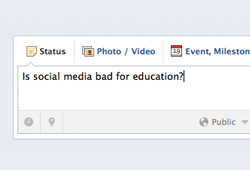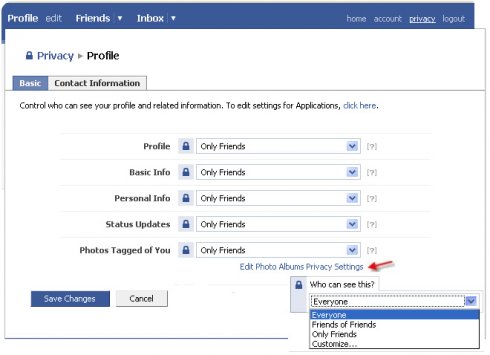
The use of social media in education continues to be something of a hot topic with arguments both for and against.
So I carried out a small survey of 27 teaching professionals in order to create a baseline of understanding into the use (or not) of social networking in schools, and also any concerns over some of the e-safety risks. The full survey results can be found here.
There are many uses of social media in education – below are just a few of the ways they can be effectively used.

After taking part in the online #pechat on Twitter this week - about the use of social media within physical education - it got me thinking about the use of it generally in education. There are pockets of good practice springing up all over the place, creating fast and effective communication with students, but in my opinion it is largely being held back by a stigma that social media is all bad news.
Let’s explore the myth that social media is bad news and creates problems for schools.

As the use of social media in education increases, so does the argument for and against. The purpose of this article is to try and take a balanced view of both sides of the coin and also to look at some of the reasons why schools won’t engage using social media. In order to achieve this, Matt Britland and Alan Mackenzie have collaborated, with Matt looking at the curriculum aspects, and Alan looking at any e-safety aspects.
The first step to understanding some of the issues was to create and Tweet out a link to a survey of 10 simple questions, the results of which were all saved to a Google Docs spreadsheet. Then, a further Google Doc was created to collaboratively write the article.

In April this year, the NUT warned teachers about the dangers of befriending pupils on social networking sites such as Facebook. The implications are so great that some schools have banned teachers from using Facebook altogether.
It's certainly true that Facebook can be a perilous place for teachers. Is it okay to accept a “friend request” from a pupil whom you know personally? What happens if you reject that friend request? Can you prevent pupils from viewing your pictures and wall posts? What should you do if a pupil posts a message on your wall? What happens if a pupil sees a comment you've made on someone else's wall?
Currently there is a gap between what students at the secondary and post-secondary levels are learning about human rights violations, and what is being done to stop them. Many humanities’ classes and curricula have genocide and human rights as a unit, but assess their students using traditional assessments.

A community-driven platform for showcasing the latest innovations and voices in schools
Pioneer House
North Road
Ellesmere Port
CH65 1AD
United Kingdom